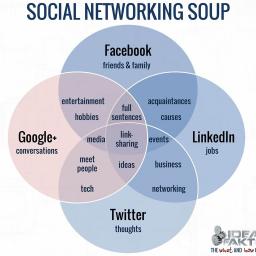Ubuntu keeps working on
optimizations of its controversial UI, and they haven't all been equally liked. This one, too, is sure to cause some controversy:
They've removed the ability to choose whether the buttons go on the left or right side of a window .
That's not necessarily an option that everyone cares about, but those who do, care
strongly about the now-removed feature. From the AskUbuntu forum:
It seems that Canonical went the totalitarian way and ordered that users should not be allowed to change the buttons position (you can find more technical details of this change on the bottom of this post).
As for now the only way to have windows buttons on the right side in 14.04 is to switch from Unity to the Gnome Flashback session (what I personally recommend). More details on how to do that are presented below.
That is, the days of being able to make this personalization to your config, once easily handled either via the
gconf-editor command line tool, or the equally comfortable command:
gsettings set org.gnome.desktop.wm.preferences button-layout ":minimize,maximize,close" have drawn to a close. Hope you like Ubuntu's choices, everyone: they're the only choices you get!

What's the best computer you ever owned? Step aside with your Core Duo, son, and make some room for the gentleman who wants to tell you about his
Commodore 64 . Or
Sinclair ZX . Or
DEC Terminal .
Retro computing is hotter than ever, attracting the interest of a whole new generation who takes interest in the machines of the 60s, 70s, and 80s. You may have missed the
Retro Computing Fair in East Philadelphia last month, but that doesn't mean you're out of luck. Roswell, Georgia is hosting a
Vintage Computing Festival next month, and museums dedicated to classic hardware are springing up everywhere, like
this one in Ramsgate, UK. Most of them are the product of their passionate founders who have opened up their personal collections.
Can't make it anywhere? It's still not too late to
play some classic Commodore 64 games courtesy of a Raspberry Pi and some clever emulation.
That's the thing about bits. Eight of 'em should've been enough for anybody.
Good news everyone! I hacked away enough at the code base this weekend to make it mildly presentable. Weighing in at 814 kB, the download shouldn't stress your connection too much. :)
So, if you are interested in installing it yourself, go to
http://pipecode.org/ for the installation instructions and the download tarball. The
GitHub repository has also been updated.

This is either the age of social networking, or it's not. It's either the future, or it's already a has-been. What the heck is going on?
Forbes has printed a thoughtful article on
why Google Plus has failed to thrive . The Atlantic has written a piece suggesting
Twitter is on the decline . Facebook's interest among teens seems to be slowing, while their
"page reach" is down by 50% .
So, what's going on? Is it because, post-
Snowden , everyone is tired of being spied on? Has everyone moved on to cooler platforms? Has everyone ditched social networking and
gone back to Usenet ? Is it possible, as one author suggests, that
privacy is now overtaking sharing on the 'Net? Or has everyone just found something more productive to do, like work in the garden?
[Note: this article has been cross-posted nowhere else. :) Want to comment? Here's the place.]
Noted and well-respected theoretical physicist
Steven Hawking discusses the potential of advanced artificial intelligence in a recent article published in The Independent. He frames the discussion in terms of "incalculable benefits and risks." Although even the original article is fairly superficial, it raises a good point for discussion: how can we learn to understand and prepare for the implications of this technology today? And who are the thought leaders who are asking (and answering) the right questions about this
powerful science ?
Over the past few months I've been successively spending more and more time working on developing a computer game. Now, it was hardly noticeable at the beginning, but as time has gone on, I've been having more and more trouble remembering things. Sometimes it's in my every day life, like, I forget where I'm going, but more often than not, I'll be working, and I'll switch between two files, and then completely forget why I did or what I'm doing in the new file.
Has anyone had this problem? Or do I just have a case of programmer's-island-fever?

Privacy Badger, a new tool from EFF to combat online tracking and spying, is in alpha release and
looking for testers: EFF is launching a new extension for Firefox and Chrome called Privacy Badger . Privacy Badger automatically detects and blocks spying ads around the Web, and the invisible trackers that feed information to them. You can try it out today.
Interestingly, the announcement of the alpha release of Privacy Badger came the same day that news broke regarding
Yahoo's decision to no longer respect users' "Do Not Track" browser settings.
Privacy Badger , which is based on the Adblock Plus code, is available for
Chrome and
Firefox . The source for each is available on github and any bugs found should be filed against the relevant
Chrome or
Firefox repositories.
[This story is also being discussed on Soylent ]In the Snowden era, it's pretty clear that the Internet as a worldwide communication medium that would permit activists to securely communicate and disseminate information has not been effective:
governments appear to be surprisingly and increasingly effective at clamping down on, censoring, controlling Internet information
as well as using it to track down dissidents. Mobile telephony isn't much better as it's a related technology that suffers many of the same ills as TCP/IP with regard to anonymity. So the privacy gurus are turning to a technology you'd probably forgotten:
Ham Radio .
Airchat, they call it, and
it's got a few characteristics that make it very interesting and useful . The group states:
The goal of the project is to communicate directly, without using Internet or cellular infrastructure. ... We traded bandwidth for freedom, simplicity and low cost.
It's not a fast protocol, since packet data over audio channels is necessarily low bandwidth. But its promise to offer real anonymity is a big deal. And not surprisingly, these enterprising hackers are having fun with it. For starters, to anonymise communications and handle encryption and error correction, the system uses a packet they call
the Lulzpacket .
Curious?
go check out the code for yourself on github .
 How do you ensure a decent supply of potable drinking water at low cost?
How do you ensure a decent supply of potable drinking water at low cost?



